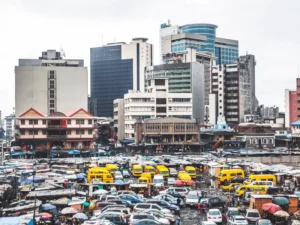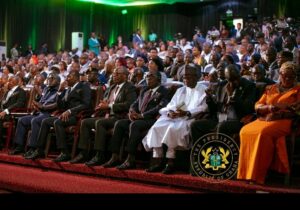ECOWAS Commemorates 50 Years of Regional Integration in Accra: Key Insights into the Institution’s Impact. By Raymond Enoch
The Economic Community of West African States (ECOWAS) has officially launched its 50th anniversary celebrations with a ceremony held in Accra, Ghana. The event, which took place on Tuesday, marked the beginning of a year-long series of activities to commemorate the founding of the regional bloc, established on May 28, 1975, in Lagos, Nigeria.
Heads of state and government representatives from member countries were in attendance, alongside ECOWAS officials and invited dignitaries.
The celebrations provided an opportunity to reflect on the organisation’s achievements over the past five decades and outline a renewed vision for regional integration and development in West Africa.
The programme of activities was validated by the ECOWAS Administrative and Financial Committee during a virtual meeting in February 2025. Originally comprised of 15 nations, ECOWAS welcomed Cape Verde in 1977, while Mauritania withdrew in 2000, signing an association agreement in 2017. Burkina Faso, Mali, and Niger exited in January 2025 due to coups. Current members include Benin, Cape Verde, Ivory Coast, The Gambia, Ghana, Guinea-Bissau, Liberia, Nigeria, Sierra Leone, Senegal, and Togo.
As a key pillar of the African Economic Community, ECOWAS works to foster unified economic cooperation in transport, energy, agriculture, and trade, boasting a regional Gross Domestic Product of $734.8 billion. In 2007, the Secretariat transitioned into a Commission to strengthen leadership and strategic direction. The Commission is led by a President, Vice-President, five Commissioners, and an Auditor General. Primarily funded by a 0.5 percent Community tax on imports from non-member states, ECOWAS drives integration through strategic programmes.
The organisation envisions a 2050 transition from an “ECOWAS of States” to an “ECOWAS of Peoples,” aiming for lasting peace and prosperity. The celebrations serve as a reminder of the importance of regional cooperation and the potential for growth and development in West Africa.








